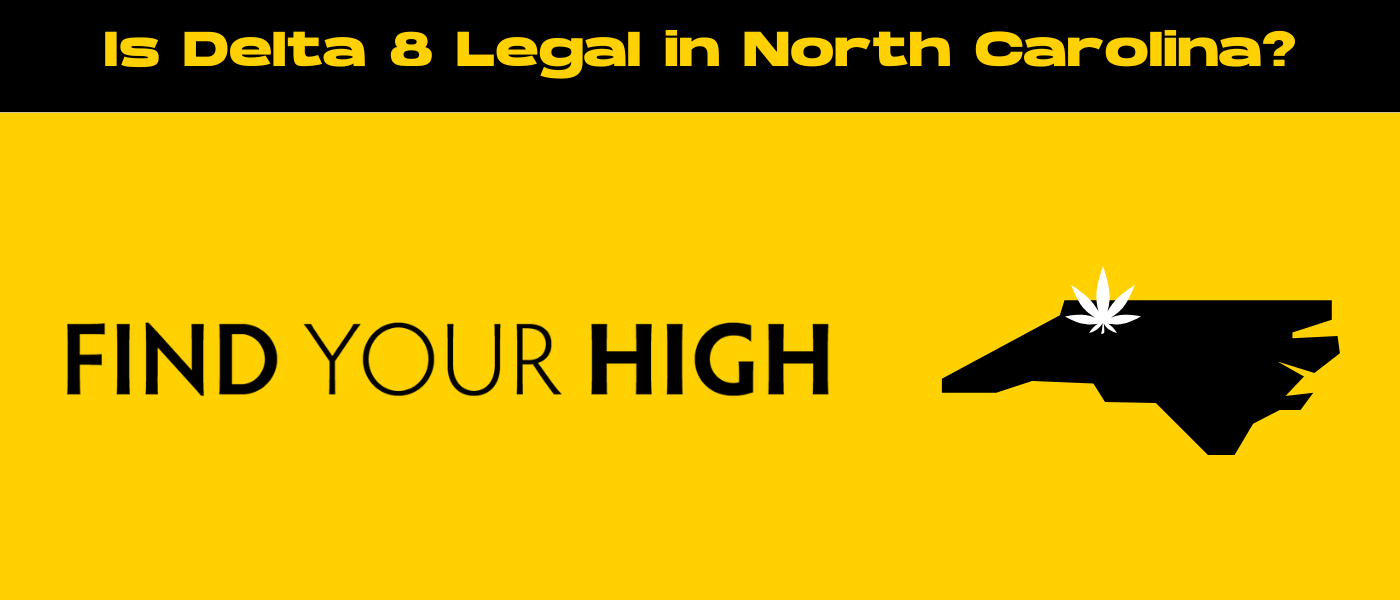Is Delta 8 legal in North Carolina? If you’re asking yourself this question, then you’re in the right place. Members of the cannabis community are familiar with the buzz around Delta 8 THC. People who find traditional cannabis a tad too intense have turned to Delta 8 for a mellower high, which explains why it’s gaining popularity faster than ever. But like all cool trends, it comes with its fair share of controversy, especially when it comes to legality.
With cannabis-related laws across the United States varying from “anything goes” to “no way, José!”, keeping track can feel like navigating a maze blindfolded. In this blog, we’re on a mission to untangle the web surrounding Delta 8 THC’s legality in the Tar Heel State—North Carolina. Are you breaking the law by enjoying this new cannabinoid, or is it a-ok? Read on to find out!
What is Delta 8 THC?
Delta 8 THC is a cannabinoid found in the cannabis plant, much like its more famous cousin, Delta 9 THC, which is the primary psychoactive component responsible for the classic “high” associated with marijuana.
While both Delta 8 and Delta 9 THC share similar molecular structures, there’s a slight difference in their chemical bonds that gives Delta 8 a reputation for producing a milder, more clear-headed high. This has made it particularly attractive to consumers seeking just a touch of euphoria without the full-on rollercoaster ride that Delta 9 offers.
How is Delta 8 extracted, you ask? It’s typically derived from cannabis plants/hemp plants through a multi-step process involving extraction, isolation, and conversion. Thanks to modern science and some smart people with beakers, they can specifically target and increase Delta 8 hemp extract concentrations—because hemp plants don’t exactly grow it in abundance naturally.
When it comes to uses and effects, Delta 8 is the versatile Swiss army knife of cannabinoids. It’s commonly used for reducing anxiety and enhancing focus, while also offering a gentle high that’s just enough to add a bit of sunshine to a cloudy day.

Federal Laws Regarding Delta 8 THC
The 2018 Farm Bill was a game-changer in the cannabis world, especially when it comes to hemp and its derivatives. By legalizing hemp with less than 0.3% Delta 9 THC, it opened the floodgates for all sorts of hemp-based products, including Delta 8 THC.
Here’s where things get interesting: Delta 8 seemingly slipped through the legislative cracks because it can be synthesized from legal raw hemp plant material, making it federally permissible as long as it’s derived from hemp and not from marijuana.
To sum it up: the federal legality of Delta 8 might be more of a gray area loophole than a clearly sanctioned substance. So, while the Farm Bill gives Delta 8 a green light, the DEA is the cautious crossing guard trying to slow things down.
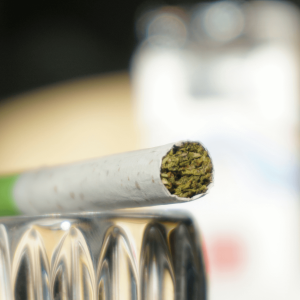
North Carolina State Laws
As of now, North Carolina has a somewhat conservative approach to cannabis compared to other states. While the Tar Heel State is still waving a firm “no” to recreational marijuana, they’ve rolled a little friendlier welcome mat for hemp—courtesy of the 2015 North Carolina Hemp Pilot Program, which allows for the cultivation and processing of industrial hemp. This program aligned with the federal 2018 Farm Bill, finding a way to embrace hemp’s potential while keeping armed with strict regulations.
Because Delta 8 THC is derived from hemp, it is not classified under the more stringent marijuana laws. So, legally, Delta 8 falls into the same category as CBD products, as long as they contain less than 0.3% Delta 9 THC, making it technically legal in North Carolina. But, here’s the twist: the state’s legal eagle squadron is keeping a watchful eye on this cannabinoid.
Currently, there aren’t any state-specific laws explicitly banning or regulating Delta 8. However, legislative winds can shift, and proposals have popped up periodically suggesting stricter controls on hemp-derived consumable products. It’s a scene poised for potential drama, with agencies and advocates buzzing about possible future regulations.
So, for now, North Carolinians seeking Delta 8 can breathe easy, though it might be wise to keep an ear to the ground for any changes in state and federal law regarding North Carolina controlled substances.
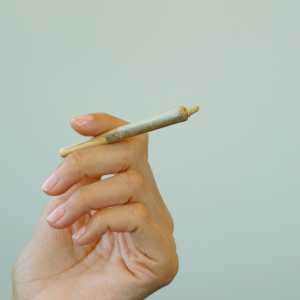
Current Legal Status of Delta 8 in North Carolina
The current legal status of Delta 8 in North Carolina is, to put it lightly, a bit of a mixed bag. Legal experts interpret the state’s position on Delta 8 largely through the lens of the 2015 North Carolina Hemp Pilot Program, aligning it with hemp law rather than marijuana legislation. This interpretation suggests a cautious acceptance of Delta 8, as long as it remains under the 0.3% Delta 9 THC threshold. However, the role of local enforcement and regulatory bodies can’t be ignored—they are the ones who ultimately enforce the rules.
- Local enforcement agencies have so far been more focused on traditional cannabis violations, placing less emphasis on Delta 8 hemp products.
- Regulatory bodies like the North Carolina Department of Agriculture have maintained oversight on the industry, but specific guidance on Delta 8 remains notably absent.
Despite the lack of explicit state guidance, North Carolina’s allowance of hemp-derived products suggests an implicit nod towards Delta 8—at least for now. But, without official state statements, its status might remain a topic of hot debate.
Potential Legal Changes and Challenges
Looking ahead, North Carolina could be on the cusp of legal shifts that might impact Delta 8’s future. Currently, there are rumors of potential new regulations or reclassifications that could specifically target hemp-derived cannabinoids like Delta 8. Legislative proposals have surfaced, aiming to tighten control and clarify legal distinctions between different cannabis products.
- Ongoing legal challenges are exploring whether Delta 8 falls outside the intended scope of existing hemp laws, with outcomes that could set significant precedents.
- For consumers and businesses, these potential changes could mean anything from more comprehensive labeling requirements to outright product bans.
The ripple effects of these developments might usher a period of uncertainty, pushing North Carolinian entrepreneurs and Delta 8 consumers to remain vigilant. Adapting to regulatory changes quickly could be crucial for businesses, while consumers may need to stay informed to continue their Delta 8 journeys legally and responsibly.
Pros and Cons of Delta 8 Legality
Delta 8’s legal status offers several benefits to North Carolina residents. Legal access means consumers can explore its versatile effects without fear of legal repercussions, enabling a broader acceptance of alternative hemp-derived products.
Economically, this can spark growth within the local cannabis sector, providing new opportunities for entrepreneurs and the potential for job creation.
However, with pros come cons. Legalizing Delta 8 brings safety concerns due to possible product inconsistencies and insufficient regulations, which could lead to issues such as mislabeled or unsafe products. As for regulatory woes, without clear federal and state guidelines, businesses might face unpredictable enforcement.
Comparing with neighboring states like Virginia and South Carolina reveals a patchwork of stances on Delta 8, adding complexity for consumers who travel regionally. Consumers must understand these differences to ensure compliance with the law across state lines.
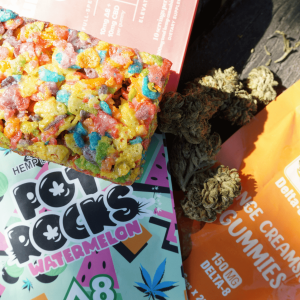
Consumer Considerations and Final Thoughts
For North Carolina consumers eyeing Delta 8 products, informed caution is key. Understanding local laws and regulations can safeguard against unintended legal pitfalls. It’s prudent to stay tuned to potential regulatory updates, as changes could swiftly impact the legality and availability of these products.
Consulting with a legal expert for personalized advice might offer peace of mind when navigating this evolving landscape. While Delta 8 currently occupies a legal gray area, the future of its legality in North Carolina is uncertain and might shift as state and federal bodies tighten their grip on the industry.
So, while there’s cautious optimism for today’s consumers, staying informed and proactive will be vital for anyone looking to enjoy Delta 8 responsibly and legally in the future. North Carolinians should weigh the potential benefits against the risks and remain vigilant as the saga of Delta 8 unfolds.
Call to Action and Resources
With the landscape of cannabis laws in North Carolina constantly shifting, it’s essential for consumers and businesses alike to stay informed. Whether you’re exploring Delta 8 or other hemp-derived products, knowledge is your best ally.
We encourage you to regularly consult with legal resources, such as local cannabis law firms or online platforms like NORML, which provide in-depth guidance on state-specific regulations. Advocacy groups can also be invaluable, as they often champion consumer rights and provide updates on legislative changes.
Together, we can navigate this evolving industry with confidence, ensuring that you make informed decisions that align with both your values and the law.
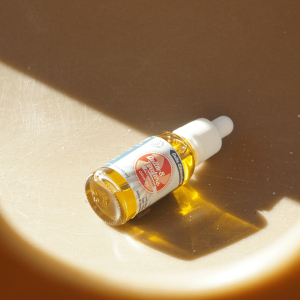
Is Delta 8 Legal in North Carolina: Frequently Asked Questions
1. Is Delta-8 legal in North Carolina drug test?
The legal status of Delta-8 in North Carolina can complicate drug testing. Although Delta-8 is not illegal, it can appear on drug tests that detect THC metabolites. If you’re regularly tested, it might be wise to research more before using Delta-8.
2. Is Delta-9 legal in NC?
Delta-9 THC is illegal in North Carolina unless it’s from industrial hemp and contains less than 0.3% concentration. Simply put, if it’s not hemp-derived or exceeds this limit, it’s not allowed.
3. Which is stronger, Delta-8 or 9?
Delta-9 THC is generally stronger than Delta-8 THC due to their chemical structures, which influence their interaction with the body’s endocannabinoid receptors. Delta-9 induces a more intense psychotropic effect, often linked with the classic cannabis ‘high.’ Delta-8 is known for a milder experience, often described as clearer and less anxiety-provoking. Those seeking a softer high might choose Delta-8, while others wanting a stronger effect might prefer Delta-9. Individual experiences vary, so starting with lower doses to gauge reactions is advisable.
4. Is Delta 10 legal in NC?
Delta 10 is currently wading through the same legal waters as Delta-8 in North Carolina. While it’s generally considered legal under the 2018 Farm Bill, which removed hemp-derived cannabinoids from the list of controlled substances, it’s still complicated. For now, enjoy cautiously, but keep an eye out for any sudden changes on your local legislative horizon.

 Rewards
Rewards



